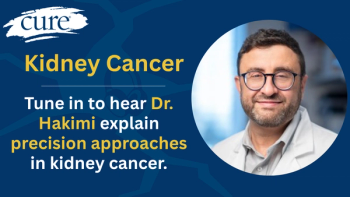
Fotivda Now Recommended for Patients With Pretreated Kidney Cancer
The National Comprehensive Cancer Network updated its guidelines to recommend Fotivda for patients with pretreated renal cell carcinoma, a type of kidney cancer.
The National Comprehensive Cancer Network (NCCN) updated its kidney cancer treatment guidelines to include Fotivda (tivozanib) in its Category 1 status — which means that the nonprofit alliance of more than 30 cancer centers strongly recommends the treatment — for patients with renal cell carcinoma who have received two or more prior therapies.
“Category 1 is the highest Category recommendation offered by NCCN, which is based on strong clinical evidence and perception of the product among the NCCN Panel Members. The NCCN guidelines are recognized and followed by both academic and community oncologists when selecting appropriate therapeutic options for their patients,” said Michael Bailey, president and CEO of AVEO, the pharmaceutical company that makes Fotivda, in a press release.
Fotivda is a tyrosine kinase inhibitor (TKI) that is taken orally, and works by inhibiting vascular endothelial growth factor receptor (VEGFR), which plays a key role in the development of cancer cells.
The NCCN based its recommendation on findings from the
Long-term data from TIVO-3 showed that treatment with Fotivda elicited a higher overall response rate (percentage of patients whose disease shrinks as a result of treatment) than Nexavar, at 10% and 8%, respectively.
Additionally, long-term progression-free survival(time from treatment until disease gets worse) rates were higher with Fotivda than Nexavar. At 36 months after treatment, 12.3% of patients on Fotivda did not experience disease progression, compared to 2.4% for those on Nexavar. At 48 months, progression-free survival rates were 7.6% and 0% for the Fotivda and Nexavar groups, respectively.
In 2021, the
“This year we presented encouraging long-term, progression-free survival and overall survival follow-up data from the phase 3 TIVO-3 study. These new data demonstrate the durability of Fotivda's anti-tumor activity which has translated into an improving overall survival hazard ratio,” Bailey said.
For more news on cancer updates, research and education, don’t forget to




